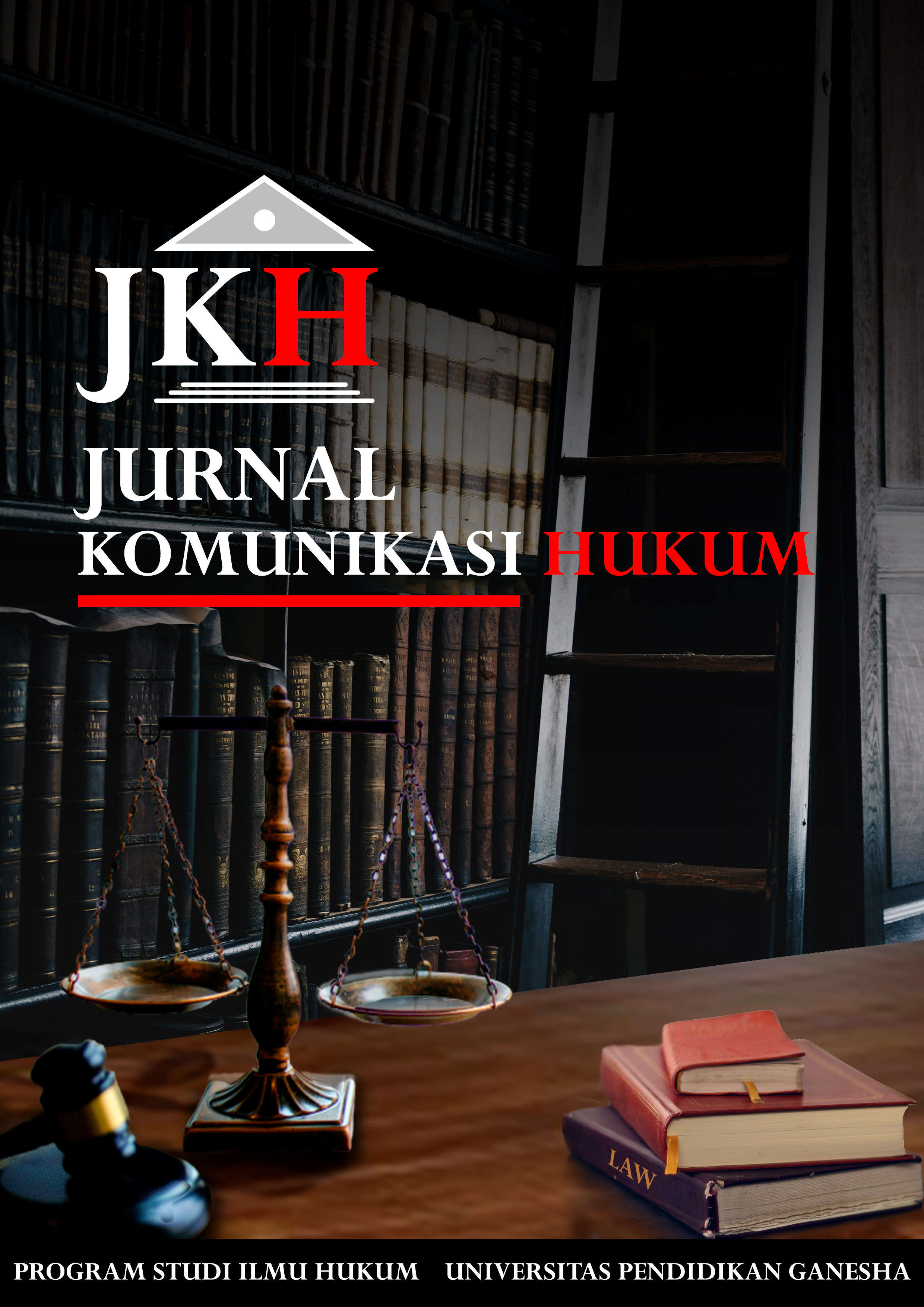PROGRESSIVE AND DIVERSION PROCESS: PROTECTION RULE AND ENFORCEMENT OF THE JUVENILLE JUSTICE
DOI:
https://doi.org/10.23887/jkh.v8i1.47832Abstract
The implementation of juvenile justice with a progressive legal approach deserves to be used in child law enforcement because it prioritizes the interests of child protection. The relevance of progressive law enforcement to the juvenile justice system in Indonesia rests on the objectives of the juvenile justice system and the existence of rules for arrest, detention, and sentencing of crimes as an effort and form of sanctions against children, which can be in the form of treatment placed in the juvenile justice constitution. This research uses the juridical-normative method, namely legal analysis conducted by reviewing library materials or secondary data, and the data will be analysed through qualitative methods. This study aims to make law enforcers apply progressive law maximally in law enforcement of juvenile justice. The results of this study indicate that law enforcement for juvenile criminal justice in Indonesia is generally still far from the will of law enforcement with a progressive legal approach, and diversion is the right way to decide child criminal cases.
Downloads
Published
How to Cite
Issue
Section
License
Authors who publish with this journal agree to the following terms:- Authors retain copyright and grant the journal right of first publication with the work simultaneously licensed under a Creative Commons Attribution License that allows others to share the work with an acknowledgement of the work's authorship and initial publication in this journal.
- Authors are able to enter into separate, additional contractual arrangements for the non-exclusive distribution of the journal's published version of the work (e.g., post it to an institutional repository or publish it in a book), with an acknowledgement of its initial publication in this journal.
- Authors are permitted and encouraged to post their work online (e.g., in institutional repositories or on their website) prior to and during the submission process, as it can lead to productive exchanges, as well as earlier and greater citation of published work (See The Effect of Open Access).
Authors who publish with this journal agree to the following terms:
- Authors retain copyright and grant the journal right of first publication, with the work [SPECIFY PERIOD OF TIME] after publication simultaneously licensed under aCreative Commons Attribution License that allows others to share the work with an acknowledgement of the work's authorship and initial publication in this journal.
- Authors are able to enter into separate, additional contractual arrangements for the non-exclusive distribution of the journal's published version of the work (e.g., post it to an institutional repository or publish it in a book), with an acknowledgement of its initial publication in this journal.
- Authors are permitted and encouraged to post their work online (e.g., in institutional repositories or on their website) prior to and during the submission process, as it can lead to productive exchanges, as well as earlier and greater citation of published work (See The Effect of Open Access).












